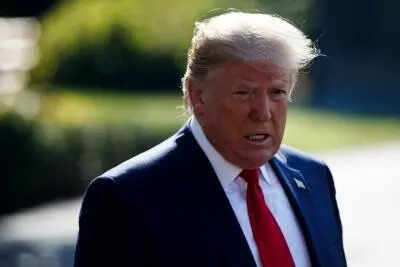A dramatic federal courtroom scene has reignited a national reckoning over science, equity, and political interference. In a landmark ruling on Monday, US District Judge William Young condemned the Trump administration’s abrupt termination of hundreds of federally funded research grants, many centered on diversity, equity, inclusion (DEI), and gender identity, as a breach of legal procedure and a veiled act of racial and LGBTQ+ discrimination.The verdict, delivered during a high-stakes hearing in Massachusetts, may reshape how governments are allowed to exercise discretion over scientific funding, and how far political ideology can intrude on public health research.
A judicial blow to executive overreach
Judge Young, appointed by President Ronald Reagan and widely respected for his legal gravitas, pulled no punches in his remarks. Describing the Trump administration’s actions as “arbitrary and capricious,” he rebuked federal officials for violating long-standing procedural norms in canceling research projects tied to DEI initiatives.“It is palpably clear that what is behind this is racial discrimination and discrimination against America’s LGBTQ community,” Young declared in court. “After 40 years on the bench, I’ve never seen government racial discrimination like this. Have we no shame?”The ruling came in response to two lawsuits, now consolidated, filed earlier this year by 16 state attorneys general, advocacy groups, and several scientists whose research was defunded. These lawsuits allege that the government terminated projects not on scientific grounds but because they explored politically disfavored themes such as racial health disparities, sexual orientation, and social determinants of disease.
The scope of the cancellations
While Monday’s ruling addresses only a subset of the cancelled grants, it sheds light on the breadth of the administration’s actions. The terminated projects, many of them backed by the National Institutes of Health (NIH), ranged from studies on Alzheimer’s in Black communities and depression among LGBTQ+ youth to trials examining how medications respond differently in individuals from diverse genetic backgrounds.In court documents, plaintiffs argued that universities received impersonal, template-style termination notices that offered no detailed justification. Some of the research was already midstream, with patient data collected and lives potentially impacted by halted clinical trials.
Government’s defense meets judicial skepticism
Despite mounting criticism, the Department of Health and Human Services (HHS), which oversees the NIH, stood by the cuts. In a written statement, HHS spokesperson Andrew Nixon said to Associated Press:“HHS stands by its decision to end funding for research that prioritized ideological agendas over scientific rigor and meaningful outcomes for the American people.”Yet during the hearing, government attorneys failed to provide a working definition of DEI—an omission Judge Young seized upon. He questioned how the NIH could justify grant cancellations on ideological grounds without articulating what exactly was objectionable.Justice Department lawyer Thomas Ports Jr. cited 13 minority health grants that were renewed or left intact to demonstrate the agency’s commitment to diversity. He also claimed some cancellations were due to inadequate scientific value. However, Judge Young countered that such arguments masked a more troubling motive.
Consequences and next steps
Though Judge Young’s remarks were forceful, the written order restoring the funding is pending and may still face appeals. The Trump administration has signaled it is “exploring all legal options,” including asking for a stay or taking the case to a higher court.The implications are far-reaching. Legal scholars argue that this case may become a bellwether for how federal agencies define “ideological” research and whether the government can be held accountable for politicizing science. It also raises deeper constitutional concerns over equal protection and viewpoint discrimination.Meanwhile, the ruling represents a partial but significant victory for scientists, public health advocates, and universities that have accused the federal government of undermining research in vulnerable populations.












